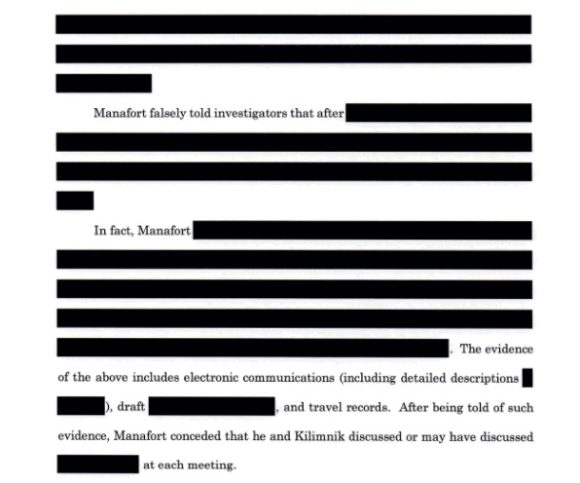Dear Commons Community,
Yesterday, in an op-ed letter (see below for full text) in the Washington Post, 44 former U.S. Senators issued a plea to current and future members of the Senate to defend American democracy. “We are at an inflection point in which the foundational principles of our democracy and our national security interests are at stake, and the rule of law and the ability of our institutions to function freely and independently must be upheld,” the senators warned.
The inflection point is not just President Trump and his administration’s conduct writ large, but the coming reckoning over whatever it is that Robert Mueller ends up finding. “We are on the eve of the conclusion of special counsel Robert S. Mueller III’s investigation and the House’s commencement of investigations of the president and his administration,” the letter reads. “The likely convergence of these two events will occur at a time when simmering regional conflicts and global power confrontations continue to threaten our security, economy and geopolitical stability.”
It is a bipartisan call that doesn’t single out Donald Trump directly but can be read as a call for bipartisanship ahead of party politics and loyalties.
Tony
——————————————————————————————————————————–
Washington Post
We are former senators. The Senate has long stood in defense of democracy — and must again.
By 44 Former U.S. Senators
December 10 at 8:30 PM
Dear Senate colleagues,
As former members of the U.S. Senate, Democrats and Republicans, it is our shared view that we are entering a dangerous period, and we feel an obligation to speak up about serious challenges to the rule of law, the Constitution, our governing institutions and our national security.
We are on the eve of the conclusion of special counsel Robert S. Mueller III’s investigation and the House’s commencement of investigations of the president and his administration. The likely convergence of these two events will occur at a time when simmering regional conflicts and global power confrontations continue to threaten our security, economy and geopolitical stability.
It is a time, like other critical junctures in our history, when our nation must engage at every level with strategic precision and the hand of both the president and the Senate.
We are at an inflection point in which the foundational principles of our democracy and our national security interests are at stake, and the rule of law and the ability of our institutions to function freely and independently must be upheld.
Federal prosecutors filed new court papers on Dec. 7 that revealed a previously unreported contact from a Russian to Trump’s inner circle during the campaign. (Melissa Macaya , Monica Akhtar/The Washington Post)
During our service in the Senate, at times we were allies and at other times opponents, but never enemies. We all took an oath swearing allegiance to the Constitution. Whatever united or divided us, we did not veer from our unwavering and shared commitment to placing our country, democracy and national interest above all else.
At other critical moments in our history, when constitutional crises have threatened our foundations, it has been the Senate that has stood in defense of our democracy. Today is once again such a time.
Regardless of party affiliation, ideological leanings or geography, as former members of this great body, we urge current and future senators to be steadfast and zealous guardians of our democracy by ensuring that partisanship or self-interest not replace national interest.
Max Baucus (D-Mont.), Evan Bayh (D-Ind.), Jeff Bingaman (D-N.M.), Bill Bradley (D-N.J.), Richard Bryan (D-Nev.), Ben Nighthorse Campbell (R-Colo.), Max Cleland (D-Ga.), William Cohen (R-Maine), Kent Conrad (D-N.D.), Al D’Amato (R-N.Y.), John C. Danforth (R-Mo.), Tom Daschle (D-S.D.), Dennis DeConcini (D-Ariz.), Chris Dodd (D-Conn.), Byron Dorgan (D-N.D.), David Durenberger (R-Minn.), Russ Feingold (D-Wis.), Wyche Fowler (D-Ga.), Bob Graham (D-Fla.), Chuck Hagel (R-Neb.), Tom Harkin (D-Iowa), Gary Hart (D-Colo.), Bennett Johnston (D-La.), Bob Kerrey (D-Neb.), John Kerry (D-Mass.), Paul Kirk (D-Mass.), Mary Landrieu (D-La.), Joe Lieberman (I-Conn.), Blanche Lincoln (D-Ark.), Richard Lugar (R-Ind.), Barbara Mikulski (D-Md.), Ben Nelson (D-Neb.), Sam Nunn (D-Ga.), Larry Pressler (R-S.D.), David Pryor (D-Ark.), Don Riegle (D-Mich.), Chuck Robb (D-Va.), Jay Rockefeller (D-W.Va.), Jim Sasser (D-Tenn.), Alan Simpson (R-Wyo.), Mark Udall (D-Colo.), John W. Warner (R-Va.), Lowell Weicker (I-Conn.), Tim Wirth (D-Colo.)









